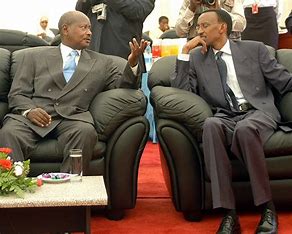
Let me begin this article by defining some key words and terms in the topic of intellectualisation. The term “Elite” according to Oxford Advanced Learners Dictionary, is a group of people in a society who are who are powerful and have a lot of influence because they are rich, intelligent.
Thus, we might have academic elite, intellectual elite, political elite, legislative elite, power elite, professional elite, administrative elite, judicial elite, media elite, et cetera. Some elites are public intellectuals, public speakers, comedians, writers, business actors, to name but a few.
In countries that are more oriented towards injustice and inequality, it is only the elite who can afford to access quality education, quality health, quality nutrition, humanising jobs. These days it is children of the elite who cannot be sucked into modern slavery but can easily be sucked into human trafficking, illicit drug trafficking, illicit human organ trade and illicit trade in various goods and services. They can connive to keep their privileged positions through ensuring that only them or those connected to them access education, health, jobs, resources and various opportunities.
The military elite who took up arms against the regimes of Apollo Milton Obote and Tito Okello in the 1980s and finally captured the instruments of power in Kampala on January 25, 1986, did not only have political power as their target but also capturing resources for their individual benefit. They capture money and goods in banks, cooperative unions and cooperative societies, and cows. Some of the loot was ferried to Rwanda by refugees who participated in the bush war in the Luwero Triangle.
Today the combatants run the economy in all its entirety. In the majority of cases to participate in the economy one must be connected to power or the actors in the power dynamics in the country. One is lucky if one has kinship, ethnic or political ties to power or those connected to power.
One distinguishing feature of our elites is that they are greedy and selfish and believe only today and now matters. They are not so futuristic in their thinking; meaning that they do not factor future generations in their equation and are more oriented towards exploiting goods and services, conquering nature and the anti-conservation attitude is almost universally developed amongst them as is the attitude that they are modern.
They are Westernised and both despise and hate their rural roots. They are almost completely urbanised, with extremely few of them having homes in the rural homes where they ancestral homes persisted for centuries. As such, they are outward-looking, with wandering minds that are more comfortable externally than internally. They need mind liberation, otherwise their country can never liberate from them and from foreigners.
More than the physical military liberations of the 1970s and 1980s that have been politically sold as the only liberations, mind liberation is a necessary liberation and is superior to the political and military liberations of old. Minds must be decolonised, de-westernized, and de-eliticised.
Today there is exacerbated elitism in Uganda whereby the false idea that people of certain ethnicity, kinship, political faith and genealogies should access all opportunities and resources. The latter is the reason why hereditary politics has been made integral to the political spectrum and processes of the country. The attitude behind this is that the poor from poor families or genealogies should never ever come anywhere near power, which has been reduced to being financially rich. It does not matter how one gets rich, although in the majority of cases the rich of the country have accumulated wealth primitively by stealing from the poor, dipping their long fingers or manipulating the national budget or line budgets in the national budget in their favour.
On November 29, 2018, William Davies wrote an article on elites in the British newspaper, The Guardian, titled “Why we stopped trusting the elites”. He argued that the credibility of established figures has been demolished by technological change and political upheavals and that it is too late to turn back the clock. He noted that politicians were exploiting their power for their private interest.
In this article I have shown that our political elite and other elites are dishonest and untrustworthy. Few Ugandans actually trust them anymore. In her article “Declining trust in elites and why we should worry about it – with empirical “evidence from Germany”, published in the publication Government and Opposition in 2008, Victoria Kaina revealed that the mistrust of elites was growing in Germany. The Atlantic (theatlantic.com) of April, 2011, records that in the USA, Americans don’t trust the elites.
There is a consistent belief since my undergraduate days in the early 1970s at the University of Dar-es-Salaam, Tanzania, that “Never trust the elite”.
The recent iron sheets saga involving top political elites in President Tibuhaburwa Museveni’s government who diverted iron sheets meant for the poor Karimojong to their constituents for political gain, seems to confirm this saying and why Ugandans should never trust the elite. The fact that the courts absolved them and President Tibuhaburwa Museveni has tiptoed on taking action against top political elite to show that he means business when he talks of ‘zero tolerance to corruption’, has exacerbated the growing mistrust of the elites in Uganda.
For God and my country – Uganda!











